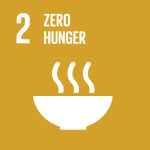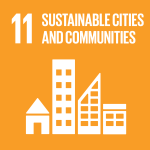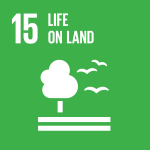
Photo:
Bangladesh’s flat topography, low-lying delta ecosystem and tropical climatic features, combined with its population density and socio-economic environment, make it highly vulnerable to climate change and variability.
More than 80 percent of the population is potentially exposed to floods and droughts, and more than 70 percent to cyclones. The coastal areas are highly vulnerable to sea level rise. Devastating storms that come along every few years have an outsized impact: Super Cyclone Amphan that hit Bangladesh on 19 May 2020 caused US$1.5 billion in damages. Cyclone Sidr in 2007 caused an estimated $1.7 billion in damages, or about 2.6 percent of GDP.
Over the past decade, the country has experienced losses of 0.5 to 1 percent of its GDP to climate hazards.
Particularly vulnerable are communities living in climatic hotspots in the Agro-Ecological Zones (AEZs).
The challenge of addressing climate change is a national priority.
Led by the Department of Environment under the Ministry of Environment, Forest and Climate Change, and working closely with Ministries down to local government and communities, this project will build on existing national priorities and approaches on climate change.
Over four years, it will support improved decision-making while focusing on capacity-building, local adaptation planning, promotion of locally-led adaptation actions and innovative adaptation strategies, as well as investments reinforcing national efforts to make Bangladesh a climate-resilient nation.
- Community
- District
- National
- Country Office
- Local Governments
- National Governments
- Non-Governmental Organizations
- United Nations Development Programme (UNDP)
1.2 million direct beneficiaries (minimum 50 percent female) in the five Agro-Ecological Zones of Level Barind Tract, Chittagong Hill Tract, Chittagong Coastal Plain, Eastern Surma Kushiara Flood Plains, and Tista Meander Floodplain Technical staff in key ministries, line agencies and local government institutions
- Bangladesh Forest Department
- Global Environment Facility (GEF)
- United Nations Development Programme (UNDP)
Expected outcomes
Outcome 1: Enhanced capacity with improved coordination mechanisms, databases and knowledge management systems at relevant ministries and line agencies to integrate climate change adaptation into national and sub-national/local levels
Outcome 2: Resilient adaptation options are implemented in select Agro-Ecological Zones
- Image

- Image

- Image

- Image

- Image

- Image

Bangladesh has invested more than US$10 billion in climate change actions – enhancing the capacity of communities to increase their resilience, increasing the capacity of government agencies to respond to emergencies, strengthening river embankments and coastal polders (low-lying tracts of lands vulnerable to flooding), building emergency cyclone shelters and resilient homes, adapting rural households’ farming systems, reducing saline water intrusion, especially in areas dependent upon agriculture, and implementing early warning and emergency management systems. The country is recognized internationally for its cutting-edge achievements in addressing climate change, but it needs to further scale up and localize its adaptation efforts, with advanced knowledge, research and development inputs.
Despite the considerable progress that the Government of Bangladesh and the Bangladeshi people have made, they face continuous challenges associated with climate change. Creating a resilient, climate risk-proof Bangladesh calls for taking evidence-based policy actions, using scientific climate risk knowledge and information in investment planning, innovate climate strategies and capacity building initiatives, in an integrated, and all-levels approach to meet current and future development.
This project will provide support to design and implement climate change activities which are aimed at reducing vulnerability and building the capacity of communities in specific agro- ecological zones (AEZ), as well as enhancing and improving adaptation planning at local evels through the provision of better quality information and data.
The project will contribute to the National Adaptation Plan process in Bangladesh, as well as meeting the primary goal for adaptation, Bangladesh’s NDC which is to protect the population, enhance their adaptive capacity and livelihood options, and to protect the overall development of the country in its stride for economic progress and wellbeing of the people.
The project will make significant contributions to closing the capacity gap between the national and local levels by:
- establishing a common knowledge and information-sharing platform for the stakeholders in the AEZs;
- strengthening the coordination of vertical and horizontal level risk-informed integrated decision making;
- enhancing the capacity of individuals, communities, institutions and system level capacity in mainstreaming adaptation into policy, planning and budgeting;
- strengthening capacities of academic and research institutions to conduct research and generate data to inform climate change adaptation strategies;
- increasing the technical capacity of relevant local government and sectoral line departments to plan and implement adaptation interventions, as well as provide climate‐smart advice and extension services to local communities;
- promoting locally-led adaptation through implementing climate‐smart agricultural, fisheries and livestock practices, integrated water resources management and watershed management measures; and
- raising public awareness and capacity of local communities on the benefits of an ecosystem‐based approach to climate change adaptation.
The project is innovative because it will implement an integrated approach to reduce climate change risks to AEZs and disaster risk management, rather than being comprised of separate and isolated sectoral approaches to addressing the effects of climate.
By adopting a comprehensive and integrated approach, the project will simultaneously address the effects of climate change across multiple sectors including water, agriculture, soil resources, forestry, and preparedness for disasters in the most climate vulnerable locations.
Furthermore, the integrated approach will help ensure that the current effects of climate change as well as the future climate risks are integrated into planning for and managing climate-related disasters. Additionally, the project will engage with institutions, local researchers and experts to increase local research and leadership capacity to produce knowledge products.
A key aspect of the project is that it will support ongoing baseline projects and national planning efforts, and will implement urgent priority interventions identified in Bangladesh’s DELTA Plan 2100, Bangladesh’s Perspective Plan (2010-2021), Bangladesh’s Eighth Five Year Plan (FY2021-FY2025) –aligned with the SDGs – and Bangladesh’s Climate Change Strategy and Action Plan (BCCSAP 2009, updated in 2020).
Key project partners will include:
- Barind Multipurpose Development Authority
- Chittagong Hill Tract Development Board
- Chittagong Chambers of Commerce and Industries
- Haor and Wetland Development Board
- Bangladesh Forest Department
- Non-governmental organizations
Component 1: Capacity building to support adaptation
Outcome 1: Enhanced capacity with improved coordination mechanisms, databases and knowledge management systems at relevant ministries and line agencies to integrate climate change adaptation into national and sub-national/local levels.
Output 1.1 Adaptation tracking facilities and databases for selected sectors are established
Output 1.2 Technical capacity strengthened to use climate information and services for planning process within the Agro-Ecological Zones
Output 1.3 Sustainable climate financing tracking mechanism facilitated
Component 2: Adaptation interventions in select Agro-Ecological Zones
Outcome 2: Resilient adaptation options are implemented in select Agro-Ecological Zones
Output 2.1: Level Barind Tract: Enhance climate-resilient agriculture, water and soil management techniques in selected sites of Naogaon District
Output 2.2: Chittagong Hill Tracts: Restoration of natural forest in degraded land and promotion of community agro-forestry in Rangamati District
Output 2.3: Eastern Surma Kushiyara Flood Plains: Swamp forest regeneration, small-scale natural adaptation interventions in Sunamganj
Output 2.4: Tista Meander Floodplain: Enhance resilience of the local communities and capacities of the local government institutions in Kurigram to cope with river flooding
Project results, indicators and targets will be monitored annually and evaluated periodically during implementation. Monitoring and evaluation will be undertaken in compliance with UNDP requirements as outlined in the UNDP POPP and UNDP Evaluation Policy. Additional GEF-specific M&E requirements will be undertaken in accordance with the GEF M&E policy and other relevant GEF policies.
The Project Manager is responsible for day-to-day project management and regular monitoring of project results and risks, including social and environmental risks, while the project’s implementing partner (Ministry of Environment, Forest and Climate Change, Bangladesh) is responsible for providing all information and data necessary for timely, comprehensive and evidence-based project reporting, including results and financial data.
The Project’s Steering Committee will take corrective action as needed to ensure the project achieves the desired results. In the project’s final year, the Steering Committee will hold a review to capture lessons learned and discuss opportunities for scaling up and to highlight project results and lessons learned with relevant audiences.
The UNDP Bangladesh Country Office will support the Project Manager as needed, including through annual supervision missions and is responsible for complying with all UNDP project-level M&E requirements.
M&E records for this project will be retained by UNDP Bangladesh for up to seven years after the project’s financial closure to support ex-post evaluations undertaken by the UNDP Independent Evaluation Office (IEO) and/or the GEF Independent Evaluation Office (IEO).
The project will be audited as per UNDP Financial Regulations and Rules and applicable audit policies on NIM implemented projects.
Key monitoring and reporting requirements:
- Inception Workshop Report
- Annual GEF Project Implementation Reports
- Independent Mid-term Review
- Terminal Evaluation (to be made publicly available in English on UNDP’s Evaluation Resource Centre)
- Final Report Package: Final Project Implementation Report, along with the terminal evaluation and corresponding management response
- UNDPKarma Lodey RaptenRegional Technical Adviser, Climate Change Adaptation


